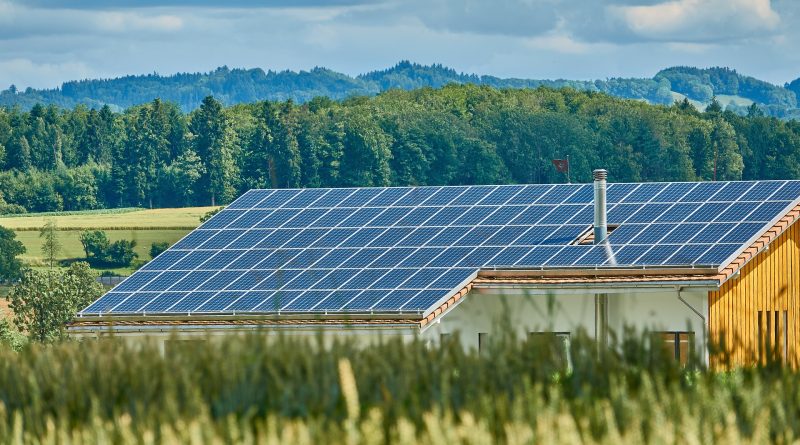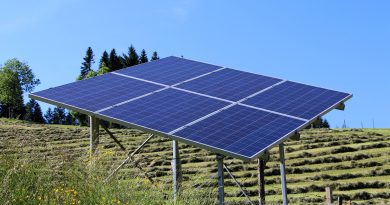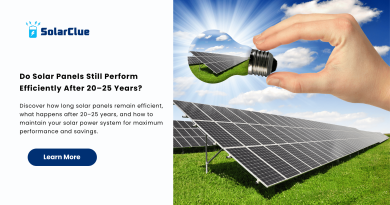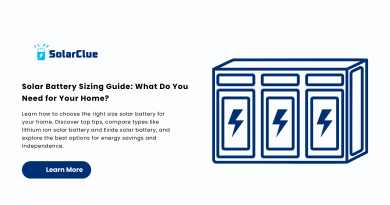Choosing the Best Solar Panels for Your Property: A Guide
Solar energy is becoming an increasingly popular and accessible option for homeowners looking to save money on their electricity bills and reduce their carbon footprint. Installing solar panels on your property is a smart investment that can provide you with clean and renewable energy for years to come. However, with so many options available, choosing the best solar panels for your property can be a daunting task. In this blog, we will guide you through the process of selecting the right solar panels, considering various factors such as efficiency, cost, and durability.
Table of Contents
Understanding Solar Panel Efficiency
One of the key factors to consider when selecting solar panels for your property is their efficiency. Solar panel efficiency refers to the amount of sunlight that can be converted into usable electricity. Panels with higher efficiency produce more electricity, maximizing your energy generation potential. When comparing different solar panels, look for their efficiency ratings, which are usually shown as a percentage. High-efficiency panels may be more expensive initially, but they can generate more electricity over their lifetime, which can result in significant savings in the long run.
Considering Cost and Return on Investment
While choosing the best solar panels for your property, it is essential to evaluate the cost and consider the return on investment. The cost of solar panels depends on various factors, including the brand, size, and quality. To ensure you make a wise investment, compare the upfront costs and potential savings in your electricity bills.
Consider the payback period – the time it takes to recoup your investment through energy savings. High-quality solar panels usually have a shorter payback period due to their increased efficiency. Additionally, take advantage of government incentives, such as tax credits or rebates, to further reduce your overall costs.
Assessing Durability and Warranty
Solar panels are designed to last for decades, so it is crucial to choose panels that are durable and can withstand harsh weather conditions. Look for panels with a high durability rating, which indicates their ability to withstand impacts from hail, storms, or extreme temperatures. Solar panels with a strong frame and tempered glass are likely to have better durability.
Furthermore, consider the warranty offered by the manufacturer. Most solar panels come with a performance guarantee and a product warranty. The performance guarantee ensures that the panels will continue to produce a certain percentage of their rated output over time, while the product warranty covers defects or damage. Opt for panels with longer warranties to safeguard your investment.
Evaluating the Reputation and Certification of Manufacturers
When choosing solar panels, it is crucial to consider the reputation and certification of the manufacturers. Reputable manufacturers have a track record of producing reliable and high-quality panels. Research the company’s history, customer reviews, and ratings from independent organizations to ensure their credibility.
Additionally, certifications play a significant role in determining the reliability and performance of solar panels. Look for certifications such as IEC (International Electrotechnical Commission), UL (Underwriters Laboratories), or TUV (Technischer Überwachungsverein) to ensure that the panels meet international safety and quality standards.
Understanding the Different Types of Solar Panels
Solar panels come in various types, each with its advantages and applications. The three most common types are monocrystalline, polycrystalline, and thin-film panels.
Monocrystalline panels are made from a single crystal structure, offering high efficiency and a sleek appearance. However, they tend to be more expensive than other options.
Polycrystalline panels are made from multiple silicon crystals, making them more cost-effective. They have slightly lower efficiency than monocrystalline panels but offer good performance overall.
Thin-film panels are made by depositing a thin layer of photovoltaic material on a surface. They are flexible and can be used in unique applications, such as solar shingles or solar backpacks. However, they have comparatively lower efficiency.
Consider your specific needs and constraints when choosing the type of solar panel that suits your property best.
Conclusion
Transform your property into an energy-efficient haven with SolarClue® as your guide. Our comprehensive guide helps homeowners choose the best solar panels by considering efficiency, durability, warranty, and compatibility with property energy needs. Explore high-performance options from SunPower, LG Solar, and Panasonic for optimal results. Monocrystalline panels, preferred for residential use, ensure both efficiency and aesthetic appeal. SolarClue® offers personalized consultations to align solar solutions with your property’s unique requirements. With a focus on customer feedback and reviews, we ensure informed decision-making. Leverage government incentives through SolarClue® for a financially rewarding and sustainable solar investment. Contact us to embark on a greener property transformation today.
Frequently Asked Questions
Efficiency, durability, warranty, type (monocrystalline or polycrystalline), and compatibility with the property’s energy needs are key considerations.
Higher efficiency panels generate more electricity in limited space, making them ideal for residential properties with limited roof space.
Monocrystalline panels are often preferred for residential properties due to their higher efficiency and sleeker design.
A longer warranty, typically 25 years, provides assurance of the panels’ durability and performance over an extended period.
Understanding the property’s energy consumption patterns helps determine the number and type of panels required to meet those needs effectively.
Brands like SunPower, LG Solar, and Panasonic are recognized for producing high-performance solar panels suitable for residential properties.
Certainly, SolarClue® offers personalized consultations to assess property-specific energy needs and recommends the best-suited solar panels from our range of high-quality products.
Reviews offer insights into the real-world performance and reliability of solar panels, aiding homeowners in making informed decisions.
Aesthetically pleasing panels, such as those from SunPower and LG Solar, contribute to the visual appeal of residential installations.
SolarClue® guides homeowners in maximizing financial benefits by navigating available government incentives, rebates, and tax credits for their solar investments.




